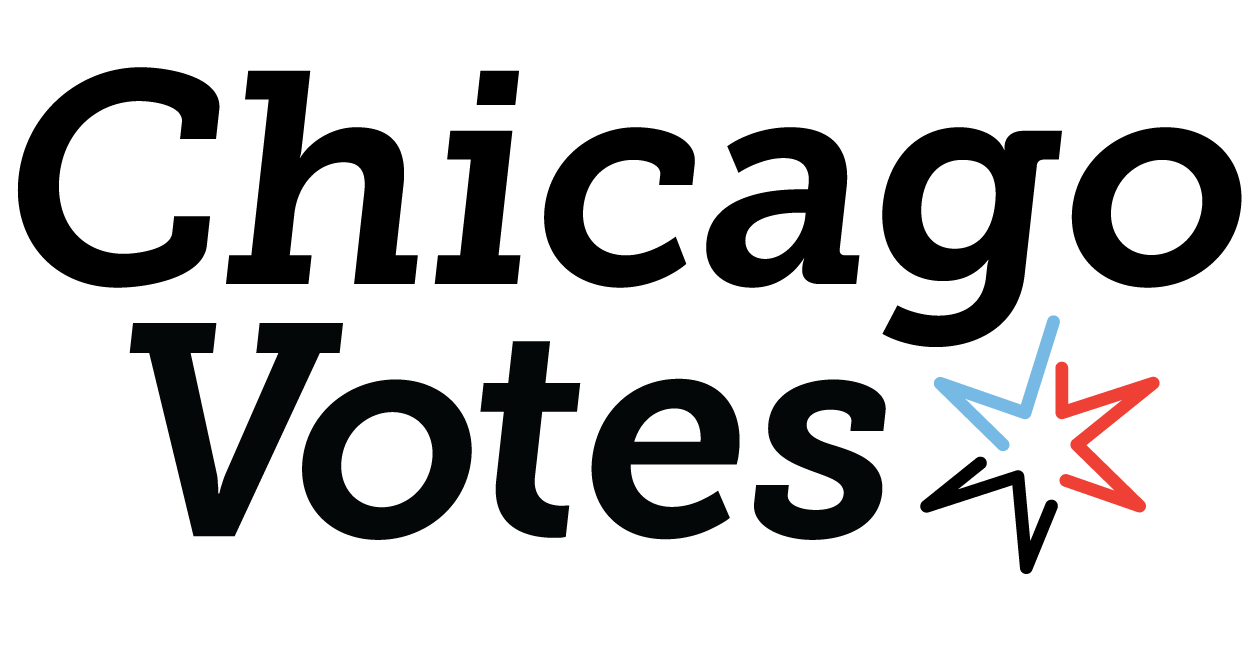By Caleb Dunson, Chicago Votes Inaugural Brian Sleet Fellow
It takes no stretch of the imagination to realize that 2020 has been a profoundly difficult year, and disproportionately so for people of color. A pandemic is raging across our country, now reaching new highs in infections and deaths. Black people are being murdered without consequence by agents of the state. California wildfires signal just how close the impending danger of climate change is. Economic turmoil has struck the vulnerable, while billionaires continue to accrue wealth and Congress remains stuck in a stalemate on the provisions of their economic stimulus bill.
In that sense, it feels insensitive when ads and social media posts inundate us with calls to vote. The ads and posts come across as a claim that voting is the absolute solution to the problems we face, and that once we vote, our challenges will magically disappear. But we know there are problems casting a ballot will not immediately fix.
Voting is by no means the end-all solution to the bevy of issues that plague our nation, and it should not be looked at as such. We should instead consider voting to be a tool amongst many in our expansive advocacy and activist work. There is an indisputable power to voting, and we cannot afford to willingly sacrifice it.
Voting Allows Us to Hold Elected Officials Accountable
Our elected officials are tasked with representing our wishes in government, but they have no incentive to do so if we do not vote and affirm our position as members of their constituency. By voting, we hold our politicians’ feet to the fire. We force them to listen to us because we determine whether or not they have a job every election season, and that gives us the leverage we need to push for change. With a broad voting coalition, we can begin to demand the proper representation of our interests in the halls of government.
In that way, our vote reinforces the power dynamic that should exist between citizens and their representatives, one in which the representative works only for the best interest of their community as the community members themselves see it. Not one where representatives are influenced by self-interest, personal ambition, and corporate lobbying.
Voting Adds Teeth to the Demands of Activists and Organizers
The power of voting extends to the organizing and activist spheres as well. When politicians, and body politic more broadly, know that activists and organizers vote consistently, the demands made through protests and petitions become key issues that can swing an election and are thus pushed into mainstream political discourse. Casting our ballots consistently ensures that the issues we care about will always have a place in electoral politics, and ensures that our demands of justice and equity will not go unnoticed or unheard. Pressure breeds progress, and the dual pressure of organizing and voting makes positive change more attainable.
Voting in Local Elections Shapes our Everyday Lives
Because law is a reflection of our societal values and shapes the way we navigate public and private spaces, when we vote, we entrust our way of life to the people that take elected office. That is especially true on the local level. Judges, aldermen, state representatives, and state senators are touchpoints for justice in Chicago. They craft the legislation that governs our city and determine the penalties for violating that legislation.
Thus, our decision on whether or not to vote is ultimately a decision on whether or not to reclaim our power as democratic citizens who can determine how we wish to live our lives. The Fair Tax proposition on the ballot this year is case in point; the decision on whether or not to implement a progessive income tax is ultimately a decision on how you would like your wealth to be distributed among you, your community, and your state.
By not voting, we cede power to the interests of those who vote most often, disproportionately white, old, and wealthy people, who likely have values that are in direct conflict with ours. And with issues like legal system reform, policing, income inequality, and climate change up for debate, we cannot afford to allow our voices to go unheard.
Voting is a Symbol of Our Hope and Our Will
This election season has been discouraging, and there will always be reasons not to vote, but there is something inherently powerful in not allowing the challenges that have plagued this year to reduce our resolve and dampen our desire for change.
Despite the political candidates that leave much to be desired, despite the pain our communities continue to endure, despite all the horrible and discouraging events that have occurred this year, I will vote. I will vote as an act of resistance because I refuse to let the circumstances of this year deter me from engaging in politics. I will vote as a symbol of hope for the future and a symbol of my unwavering commitment to fighting for change. I will vote to preserve the integrity of our democracy and ensure that all who have a voice will be heard. Will you join me?
